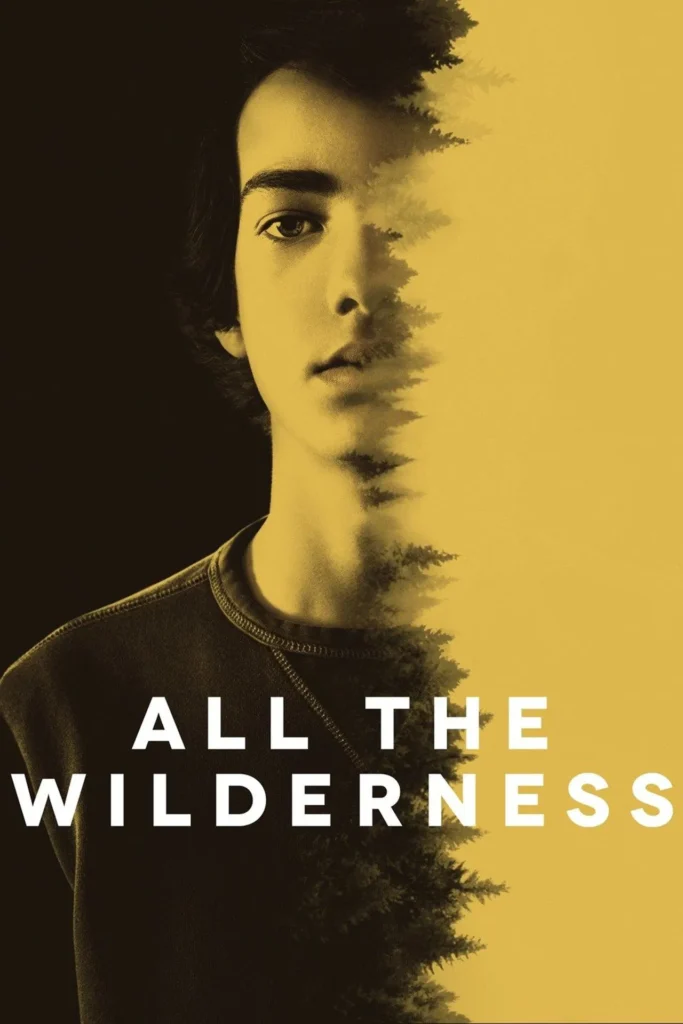
Director: Michael James Johnson
Genre: Drama
Runtime: 78 minutes
Language: English
IMDb Rating: 5.8/10
Rotten Tomatoes: 63%
Metacritic: 54/100
Plot: Navigating the Wilderness of the Mind
All the Wilderness follows James Charm (Kodi Smit-McPhee), a reclusive teenager grappling with the recent death of his father. Living with his mother, Abigail (Virginia Madsen), James retreats into his imagination, creating morbid sketches and exploring the nocturnal streets of Portland. His encounters with Val (Isabelle Fuhrman), a fellow patient at his psychiatrist’s office, and Harmon (Evan Ross), a street musician, guide him through a journey of self-discovery and healing. The film delves into themes of grief, adolescence, and the search for identity.
As a quiet, character-driven indie film, it found a dedicated audience through word-of-mouth and its availability on streaming platforms. Sites like 123movies and similar services often serve as a discovery hub for such under-the-radar gems, allowing poignant stories like James’s to reach viewers who might have missed their limited theatrical run. This digital lifeline is crucial for independent cinema, connecting intimate narratives with the audiences who most appreciate them.
Visual Style: A Dreamlike Portland Landscape
Director Michael James Johnson, in his feature debut, presents Portland, Oregon, as a character in itself. The city’s misty forests, dimly lit streets, and urban landscapes mirror James’s internal turmoil. Cinematographer Adam Newport-Berra captures the ethereal beauty of the Pacific Northwest, creating a visual poetry that complements the film’s introspective narrative.
Cast: Portraying the Complexity of Youth
Kodi Smit-McPhee (James Charm): Delivers a nuanced performance as a teenager navigating grief and isolation.
Virginia Madsen (Abigail Charm): Portrays a mother struggling to connect with her son amidst their shared loss.
Isabelle Fuhrman (Val): Embodies a free-spirited girl who challenges James to confront his fears.
Evan Ross (Harmon): Plays a street musician who becomes a mentor figure, guiding James through his emotional wilderness.
Danny DeVito (Dr. Pembry): Features as James’s psychiatrist, offering moments of levity and insight.
The ensemble cast brings depth to their roles, portraying the complexities of adolescence and the human experience.
Themes: Grief, Identity, and the Journey to Healing
All the Wilderness explores the intricacies of grief and the path to self-discovery. James’s nocturnal wanderings symbolize his internal quest for meaning and connection. The film delves into the challenges of adolescence, the impact of loss, and the importance of human connection in the healing process.
Reception: A Mixed Yet Thoughtful Debut
Premiering at the South by Southwest (SXSW) Film Festival on March 9, 2014, All the Wilderness received a spectrum of reviews. Critics praised its visual aesthetics and Smit-McPhee’s performance, while some noted a lack of narrative cohesion. The film holds a 63% approval rating on Rotten Tomatoes and a score of 54 on Metacritic, indicating mixed or average reviews.
The Critic’s Verdict
All the Wilderness is a contemplative exploration of grief and adolescence, marked by poetic visuals and compelling performances. While its narrative may meander, the film offers a heartfelt portrayal of a young man’s journey through loss and self-discovery.
Rating: 7/10
A visually evocative and emotionally resonant debut that captures the complexities of youth and grief.
Pair With
The Perks of Being a Wallflower (2012) for another introspective look at teenage life, or Into the Wild (2007) to explore themes of self-discovery and isolation.
Cultural Footprint
By delving into the emotional landscape of adolescence and grief, All the Wilderness contributes to the genre of coming-of-age dramas that resonate with audiences seeking authentic portrayals of youth and healing.
Addition
In addition to its exploration of grief and adolescence, All the Wilderness delves into the complexities of mental health and the healing power of human connection. James’s interactions with Val and Harmon serve as catalysts for his emotional growth, illustrating how relationships can provide solace amidst turmoil. The film’s portrayal of therapy sessions with Dr. Pembry, played by Danny DeVito, offers a nuanced look at the therapeutic process, emphasizing the importance of seeking help and the challenges that come with it.
The film’s atmospheric score, composed by Jónsi & Alex, enhances its introspective tone, weaving a sonic tapestry that mirrors James’s internal journey. The music’s ethereal quality complements the cinematography, creating an immersive experience that draws viewers into James’s world. This auditory backdrop, combined with the film’s visual storytelling, underscores the narrative’s emotional depth and the protagonist’s quest for understanding and acceptance.
